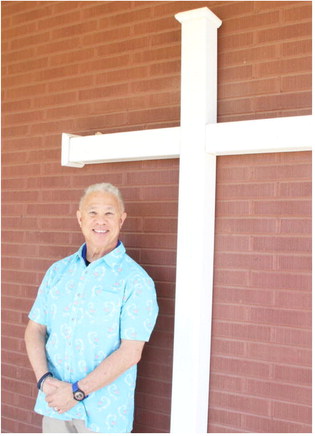State Auditor Race May Hinge More On Politics Than Policy
With political polarization strengthening across the country, even the races far down on Montana’s ballot are feeling the heat of identity politics. The state auditor is arguably the lowest-ballot race there is, but the position is responsible for supervising the state’s insurance and securities industries and investigating fraud.
Two years ago, Republican Jim Brown mounted a campaign for the state Supreme Court, trying to secure a spot on the high court by stressing his support from Republicans. That race ended in Supreme Court justice Ingrid Gustafson cruising to re-election and now Brown is angling to replace House candidate Troy Downing as the Republican in charge of insurance and securities in the state.
Jessi Bennion, a political science professor at Montana State University, said voters may care more about the R or D behind their name than individual policies.
“This election is going to show that Montana is no longer a purple state, but a red state. Voters are mainly just looking at the party behind the name when filling their ballot,” she said while on a Zoom call with reporters on Sept. 18.
For nearly 20 years Montana had been governed mostly by Democrats until 2016, when all statewide offices went to Republicans except for governor. Now, Democratic U.S. Senator Jon Tester is the only person to hold office statewide who is not a Republican.
Despite the daunting electoral politics, Democrat John Repke sees hope in his campaign for the top insurance and securities official in the state.
Repke moved to Whitefish ten years ago. Although the former business executive lives in one of the wealthiest zip codes in the state, he says his campaign is about everyday Montanans.
While lacking Montanan roots of Tester or even his opponent Jim Brown, Repke believes he’s more than just a transplant.
“My eldest daughter lives in Whitefish, and my other two daughters live in Missoula. They are impacted by property taxes, insurance, and monthly expenses just like everyone else,” he said.
These “Montana roots” have been a key campaigning move for the Democrats, including Tester’s accusing Republican Senate nominee Tim Sheehy as a “shady” outof- stater. Yet, many Republicans are making the very same argument, including Republican Brown’s campaign claim that Repke has been funded by out of state companies he used to oversee.
Brown has spent four years as chair of the Public Service Commission, the state entity in charge of overseeing energy and Internet firms. He also served as legal counsel for the Montana GOP and operated his own private law practice, including his controversial work for dark money organizations working in the state. Several attempts to schedule a more in depth interview with Brown were unsuccessful.
While Brown has embraced his national political party, Democrat Repke has stressed he would prefer to see voters choose candidates based on their qualifications, not party ID.
“In Montana, we are elected to be in this position,” he said. “Same with the PSC, and there’s no qualifications. Anybody can run. It’s a partisan race, and this really should be a nonpartisan position.”
Current state auditor and Congressional candidate Troy Downing disagrees.
“Having autonomy has helped our agency be as successful as we have been,” he said in an interview between campaign events for his run for Congressman. “Some of my colleagues are appointees, mostly by the governor, and they can’t run their office. They answer to their governor. I answer to the voters.”
Downing added that the position also comes with an appointment to the Public Land Board. “The land board’s purpose is to maximize the income of the dirt we are given without depleting its assets,” he said.
But more than positions on the use of public lands, professor Jeremy Johnson, political scientist at Carroll College, said this race may come down to what letter is affixed to the candidate’s names.
“When it comes to down ballot races that don’t get nearly as much attention as the well-known candidates, especially during a presidential election year, people tend to vote symbolically,” he said.
The general election will be held on Nov. 5, for Montanans to vote in person.

